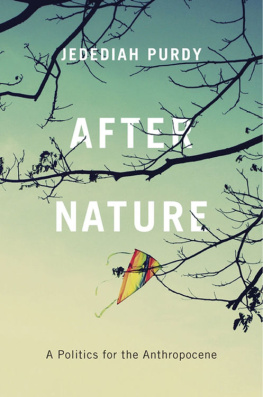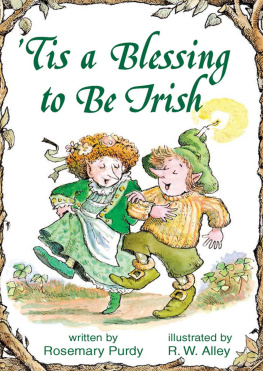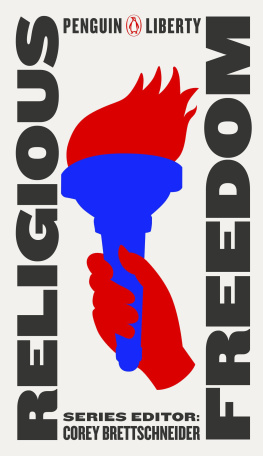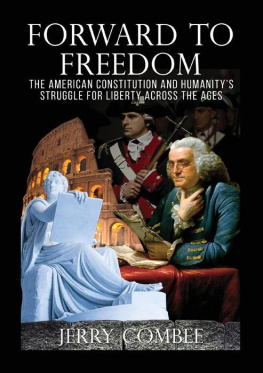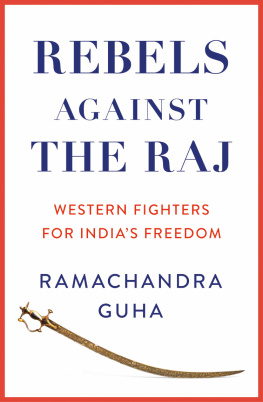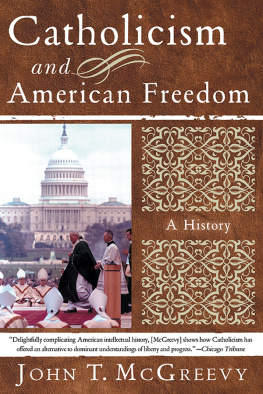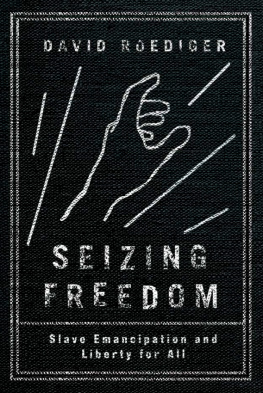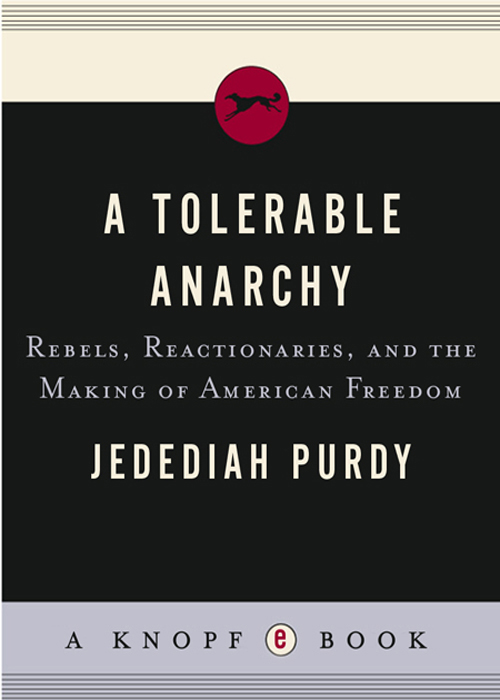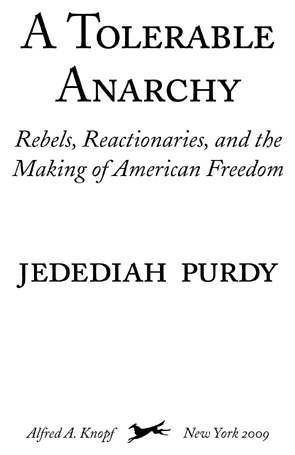INTRODUCTION
The Sensations of Freedom
A S LONDON'S WINTER ENDED IN 1775 , two great minds clashed over the American crisis. Samuel Johnson, the reigning literary lion of the age, labored on a pamphlet titled Taxation No Tyranny. It was an ironic and disdainful attack on the American colonists demands for liberty. The Americans were rebelling in the name of freedom, and Johnson believed their idea of freedom was incoherent, their vision of politics impossible, their theories the rude blurts of aroused yokels. He called the restive colonials zealots of anarchy and sneered at these lords of themselves, these kings of ME, these demigods of independence. Johnson's was no light judgment. Today we call his lifetime the Age of Johnson, and he is the English language's second-most-quoted author, after Shakespeare. He sat at the center of an Olympian circle, The Club, which included economist and philosopher Adam Smith, historian Edward Gibbon, and parliamentary leader Charles James Fox. He made and ruined reputations with a word. He meant to give the American doctrine of freedom a career-ending review.
Near the heart of Johnson's circle was Edmund Burke, the Irish-born political genius and the only living person who put Johnson in awe. Burke had just been reelected to Parliament from Bristol and belonged to the highest echelon of the governing Whig Party. The son of a Catholic mother in a time when Catholics were shut out of politics, Burke lived and acted at the center of British power, but all his life seemed compelled to imagine the lives of power's victims and speak where they could not. Later he would wage a heroic campaign against British abuses in India, once writing to a skeptical correspondent that he would fight the British East India Company whether the white people like it or not. He dedicated the late winter of 177475 to a set of resolutions calling for a rapid and respectful peace with the colonists. Burke delivered the speech introducing the resolutions, now widely called On Conciliation with America, on March 22, very soon after Johnson's pamphlet appeared. It was a showcase of Burke's powers at their peak. Declaring, I do not know the method of drawing up an indictment against a whole people, he tried instead to give sympathetic voice to the idea of freedom that had brought the Americans to the brink of revolution. He agreed with Johnson that the Americans theories were reckless, but their spirit moved him to admiration as well as alarm, and he suspected the future might belong to them.
The battles of Lexington and Concord came less than a month after Burke's speech, Bunker Hill two months after that. In some respects, the winter of 1775 was a moment of tense calm. In others, it was part of a continuing crisis. For more than a decade, England and America had struggled over Parliament's power to regulate and tax North American trade, restrict self-government in the colonies, and quarter British soldiers in American homes. In 1765, an American boycott brought England's western ports to a deathly standstill and forced repeal of the Stamp Act. In 1773, Samuel Adams staged the act of antitax theater that became known as the Boston Tea Party. The Americans pronouncements against British rule asserted natural rights in life, liberty and property (not yet the pursuit of happiness), which government could not restrict without the people's consent. They accused London of making slaves of us and claimed a right of rebellion that entitled them to defend their freedom by armed resistance.
Burke and Johnson were both skeptical of the nascent American Revolution, and for the same reasons. Johnson called the Americans concept of natural rights wild, indefinite, and obscure, and Burke basically agreed. He thought trying to settle concrete disputes by abstract principles was always dangerous, because ideas such as liberty could mean nearly anything, depending on who was interpreting them. (Today, consider the dispute over whether the word liberty in the Fourteenth Amendment of the United States Constitution protects rights to abortion and same-sex intimacy.) Similarly, consent, as the Americans used it, seemed to mean a right to withdraw from government and law whenever they became inconvenient. It was a general-purpose license for rebellion, indeed a principle for zealots of anarchy.
Both men also hated slavery, which English law did not recognize and the colonists notoriously practiced. Their hypocrisy brought an exasperated Johnson to ask toward the close of his pamphlet, perhaps thinking of the vociferous Virginians, Why is it that we hear the loudest yelps for liberty from the drivers of negroes? To him it seemed an unanswerable question. The Americans theories were meaningless. Their practice was the furthest imaginable reach of hypocrisy. Their case wavered between inane and insane. Viewed cynically, it was so much special pleading, with no principle at all. Taken seriously, it was a charter of anarchy, which, as a later English critic wrote of the Declaration of Independence, would put the axe to the root of all government. Either way, it was not serious politics but self-serving nonsense. The answer it deserved was satire.
Johnson delivered. In his pamphlet, he gleefully imagined the colonists pursuing their anarchic principles into the forested hinterlands of North America, far from any superior power. Somewhere beyond the Allegheny Mountains, a lonely rebel and his dog would collapse near starvation. The man would give some sensible order, which the cur would defiantly refuse, and the pair would congratulate each other on their sublime liberty.
Why did Burke react so differently, with respectful attention, to the American case? He shared Johnson's contempt for the abstract political ideals of natural rights that the Americans called on to justify their rebellion. If anything, he was the stronger enemy of slavery. Moreover, he sympathized with oppressed Catholicshe was, after all, the son of oneand the American rebels were often fanatically anti-Catholic. In October 1774, the Continental Congress denounced Catholicism as a religion that had disbursed impiety bigotry, persecution, murder and rebellion through every part of the world.
Burke and Johnson didn't only share enemies; they had much the same vision of the good society Johnson believed the great gift that political life gave its members was order. He told James Boswell, Sir, I am a friend to subordination, as most conducive to the happiness of society. There is a reciprocal pleasure in governing and being governed. Whatever rights men had, they took from the custom of their government, not any natural law: All government is absolutely and essentially absolute. Burke, too, believed that the rights of man could only mean the right to live by the laws and customs of one's own people, not the higher law the Americans called on. Rather than any abstract principle of legitimacy, he held that political society rested on authority and trust: unsuspecting confidence is the true center of gravity amongst mankind. Living undisturbed in a familiar order was the heart of political freedom.
Yet Burke defended the Americans, with their wild and hypocritical doctrines of freedom. Throughout the war, he privately expressed regret at American defeats and publicly continued to call for peace on favorable termsso favorable that his opponents claimed they would amount to American independence. He warned the Crown that its soldiers might lose an American war, an idea self-confident Englishmen such as Johnson thought preposterous. As early as August 1775, Burke reacted to the American war in the eerie, prophetic tone that would mark his last great works, writing to his patron, Lord Rockingham, The Spirit of America is incredible. God knows they are very inferior in all human resources. But in a remote and difficult Country such a Spirit as now animates them may do strange things. Our Victories can only complete our ruin.


